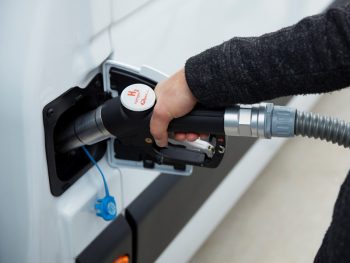The Government’s newly announced hydrogen strategy could bring benefits across the commercial vehicle market, enabling its use across the whole sector.

So says fleet software firm FleetCheck, which has welcomed the plans revealed yesterday by ministers for a “world-leading” hydrogen economy that will help to create jobs while decarbonising sectors such as heavy transport.
Underscoring commitments made in the 10 Point Plan for a green industrial revolution revealed last year, the long-awaited Hydrogen Strategy will enable government plans to deliver 5GW of low-carbon hydrogen production capacity by 2030.
This will enable decarbonisation of polluting, energy-intensive industries such as chemicals, oil refineries and power, along with heavy transport like shipping, HGV lorries and trains; helping these sectors move away from fossil fuels.
According to government analysis, up to a third of the UK’s energy consumption by 2050 could be hydrogen-based and hydrogen power is seen as critical to meet our targets of net zero emissions by 2050 and cutting emissions by 78% by 2035.
Peter Golding, managing director, FleetCheck, said the company very much welcomed the commitment, recognising its advantages for heavy vehicle applications, including trucks and buses – but added that its usage could extend further in time.
“At present, there is so little infrastructure in place and such limited vehicle availability that hydrogen adoption is not a serious proposition for the vast majority of operators but, with Government backing, we hope to see this begin to change over the next few years – although it is interesting to note that the strategy report mentions depot-based fleets as early adopters, so we will probably not see a proliferation of public hydrogen filling stations for some time.
“Probably the big question for businesses operating heavy vehicles of all kinds is whether there will be a move straight from diesel to hydrogen or a stepping stone process involving battery electric vehicles. This is, we believe, not yet clear in all parts of the market and may not become apparent for some time to come.
“Ultimately, however, we believe that the advantages of hydrogen could see it become the de facto choice in all parts of the commercial vehicle market, perhaps even down to large panel vans.”
This year has already seen a number of announcements by vehicle OEMs on introducing hydrogen fuel cell vans in the coming months, including a Renault van due this year. It’s formed a joint venture with Plug Power on both the hydrogen fuel cell electric van and to offer an all-in-one refuelling solution to enable fleets to switch.
Citroën has also revealed its hydrogen fuel cell version of the Jumpy, known as the Dispatch in the UK. The e-Jumpy Hydrogen, which is not yet confirmed for the UK but expected to be sold under the Dispatch line-up, features both a hydrogen fuel cell system and 10.5kWh mains rechargeable battery.

